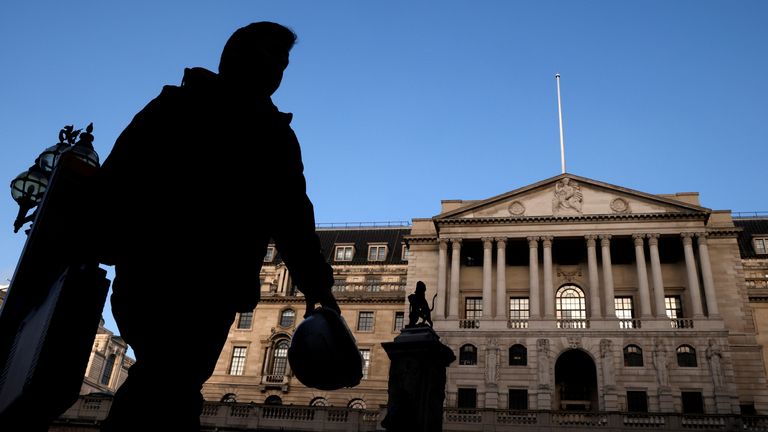A rise in operating expenses for firms in the powerhouse services sector hit their steepest level on record in June, according to a closely-watched survey.
The IHS Markit/CIPS Purchasing Managers’ Index (PMI) charted an only slightly lower level of activity growth last month compared with May amid a continued recovery for the economy from COVID-19 disruption.
It reported that the record activity growth seen in May was followed by continued high demand and supported by the best job creation seen for seven years.
But staff shortages contributed to the highest level of backlogs since the survey began in 1996, IHS Markit said.
‘Sticky inflation’ a big risk for business recoveryThe report stated that that, in turn, helped to push up prices by the most on record for inputs and prices charged.
Advertisement“Service providers noted that higher staff wages, increased raw material prices and greater transportation charges were the main factors pushing up costs.
“Strong demand for business and consumer services meant that service sector companies were able to pass on higher costs to clients during June,” it noted.
More from Business COVID-19: Boris Johnson to reveal final step of roadmap plan to ‘restore people’s freedoms’ Prospect of bidding war for Morrisons drives share price surge Morrisons takeover: Only a hostile bid would threaten the legacy and values of Sir Ken Jeff Bezos steps down as Amazon CEO today – but how much power is he really giving up? Russian-speaking hackers claim major ransomware attack which has hit hundreds of US companies Newcastle suitor Staveley accuses Premier League over £300m Saudi bidThe Bank of England is under pressure on the issue of costs as it has been forced to upgrade its expectations for consumer price inflation on the back of a surge in the consumer prices index (CPI) measure.
It was revealed last month that CPI had exceeded the Bank’s 2% target in May – forcing the bank to later admit that CPI would likely move past 3% later this year – but only temporarily.
Image: Rising energy prices are a main factor behind the recent CPI surgeIt believes that much of the inflation is “transitory” – that is a temporary consequence of life getting back to normal after the collapse in prices during 2020 that saw the economy endure its sharpest plunge in output for more than 300 years.
The Bank has signalled it is in no rush to ease off on its support such as raising interest rates from their record low level of 0.1% or cutting its £895bn bond-buying programme for fear of damaging demand.
It is waiting to see if unemployment rises as the government winds down its job subsidies over the next three months.
Tim Moore, economics director at IHS Markit, said of the big picture: “The service sector recovery remained in full swing during June as looser pandemic restrictions released pent up demand for business and consumer services.
“Sales growth eased slightly from May’s recent peak, but capacity constraints and staff shortages meant that many service providers struggled to keep up with new orders.”
Ulas Akincilar, head of trading at the online trading provider INFINOX, said of the PMI readings: “The resurgence of Britain’s dominant services sector has put a huge inflationary cheque in the post.
“Companies trying to meet a surge in demand are being hit by a perfect storm of inflation – a triple-whammy of rising wages, higher raw material prices and surging transport costs.
“In the short-term this is hammering profit margins. But in the long-term it could undermine growth, especially if the Bank of England responds with an interest rate rise.
“For now the Bank’s ratesetters insist the inflationary clouds will blow over, so the market impact of this strong data is on a par with the success of England’s footballers – great for sentiment but unlikely to trigger an immediate change in monetary policy.”
